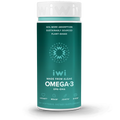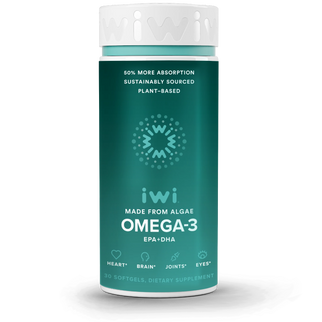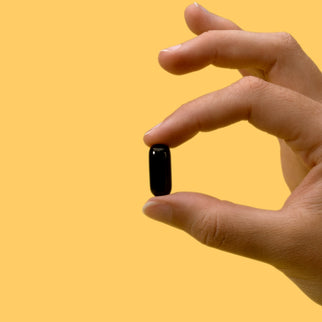Winter brings the pleasantries of the holidays, calming snow, and a wonderful relief from the summer heat.
For all of the pleasant aspects of the winter, there is one drawback, and that is brisk, dry air. This dry air can start to wreak havoc on your body, drying out your skin and potentially leading to brittle, damaged hair. Fortunately, there are some key steps you can take to protect your hair, tame any frizz, and prevent it from drying out as easily.
What Are the Consequences of Dry, Winter Air?
Dryness has a huge impact on your hair and is one of the biggest challenges that you can face when caring for it. Your hair produces a natural oil called sebum. This important oil helps to lubricate the scalp and hair shaft, acting as a protective coating while also supporting its moisture and flexibility. When your hair has too little sebum, it is at a greater risk for breakage and damage like split ends.
Dry hair can affect everything from your hair health to the appeal of your hairstyles. The wintertime is one of the hardest parts of the year to avoid frizzy hair. As a result, it takes extra mindful care in order to manage it appropriately.
Dryness may also affect the health of your scalp. A dry scalp can lead to itching, irritation, and dandruff. In some cases, depending on your hair type, a dry scalp can lead to overly oily hair as the scalp works to overcompensate for the dryness by producing extra oil. Altogether, it is important to take the right steps to avoid dry hair.
How Can I Prevent Dry Hair?

With winter on the way, it can be hard to avoid dry hair, but there are a few practices you can incorporate to give yourself the right hair care routine and maintain healthy hair.
Brush Your Hair Regularly
You should brush your hair every day to distribute your hair oils.
Since your scalp, rather than your hair strands, produces sebum, brushing helps work the natural oils through the hair down to the ends. A good brushing routine helps prevent the hair from being too dry.
Since your hair tends to be drier in the winter, you want to be careful to avoid being too rough on it. As a result, you want to be sure that you do not use a brush that is going to yank your hair strands and cause potential damage. This is especially the case for thicker and curlier hair types. Therefore, unless you have thin hair, you should rely on using a wide tooth comb to handle tangles.
If you have thicker hair, be sure to only brush dry hair rather than wet hair. Brushing your hair when it is wet can lead to breakage.
Don’t Wash Your Hair Everyday
Washing hair is crucial for getting out dirt, oil, and other contaminants. Washing your hair too often, though, can have consequences. Every time you wash your hair, you strip it of its natural oils, causing it to be dry.
Although you do not want your hair to be too oily, sebum is good for your hair, and it is important to have a balance. Generally, especially during the winter, you shouldn’t wash your hair more than four times a week, or even less, depending on your hair type.
If you are worried about your hair getting too oily in between washes, you can always use a dry shampoo to target oil and buy yourself time before needing to completely wash your hair.
Lastly, when you do wash your hair, be careful with the products that you use. Hair products with harsh ingredients like sulfates, parabens, and synthetic fragrances can dry out your hair even more, so pay extra attention when reading ingredient labels as you shop.
Use a Good Conditioner
Moisturizing your hair with the right products is always a good idea, but even more important when surrounded by dry air or when dealing with hair damage.
During the winter, you should prioritize finding a hydrating and nourishing conditioner that will provide deep conditioning down to the roots. With the harshness of dry winter air, it is important to take as many precautions as you can to protect your hair.
Look for conditioners with hydrating ingredients, like aloe vera, argan oil, olive oil, and coconut oil. Choosing the right ingredients will go a long way toward allowing you to avoid irritation and maintain moisturized hair down to the hair follicles.
In addition to a conditioner, you can also try other treatments throughout the week, like hot oil treatments, hair masks, and leave-in conditioners.
Avoid Hot Showers
Hot water is one of your hair’s biggest enemies. You’ve seen how your fingers prune up after a hot shower, or you’ve likely noticed how dry your skin is when getting out of a hot tub. If this is what happens to your skin in response to hot water, imagine how it is affecting your hair.
Altogether, hot water has some pretty noticeable drying effects. Because the winter air is dry as well, your hair never really gets a chance to replenish that necessary moisture.
Hot showers can also reduce the effectiveness of your hair care and styling products. By dehydrating your hair before putting them in, hot water prevents your hair from maintaining large amounts of moisture to lock in.
Be Cautious When Styling
Heat styling or styling with harsh styling products and heat can be a risk, especially in the winter. Blow drying should always be done with caution, as a hair dryer can lead to frizz and dry out your natural hair.
If you have a thinner or curlier hair type, the heat can be damaging at any point in the year. During the winter, when your hair is already vulnerable to dehydration, the risks of damage and breakage are even higher.
In many cases, it is actually better to pat your hair down with a towel before letting it air dry than risk heat damage to your hair. If you do need to use a blow dryer at all, it is recommended that you use it on its lowest setting to decrease the risk of damage while also using a heat protectant. Using a curling or flat iron has the same risks, so use extra caution with these tools as well.
How Can I Boost My Hair Hydration in One Step?

Although we often think of hair care as the stuff we do to our hair, like washing it and styling it, there is more to it than that. Yes, what we do to our hair matters, but what happens under the surface also matters significantly. In fact, your diet and nutrition have a key role in maintaining the health and vitality of your hair.
After all, your hair is just a combination of cells, so the more nourished you are, the healthier the cells. As a result, one simple, underrated step can support your hair care routine and help you maintain hydrated hair. An underrated way to support hydrated hair is a consistent daily omega-3 intake.
Omega-3 fatty acids can support your overall hair health. Just as omega-3s can support healthy, more hydrated skin by supporting the skin barrier and locking in moisture, they can do the same for the scalp. You can avoid irritation, dry hair, damage, excessively oily hair, and more with a more hydrated scalp. A hydrated scalp means healthy sebum production.
Not only will you see added benefits for the scalp, but you will also be able to enjoy more hydrated, healthier hair. Omega-3s nourish the hair follicles, supporting a strong foundation for your hair strands by providing key nutrients to the hair follicles. Some studies have even shown omega-3s to be helpful in supporting hair thickness and maintaining a full head of hair. This may be attributed to their ability to support circulation and soothe skin irritation.
Keep Your Hair Hydrated
Altogether, there can be a lot to consider as you work to craft the right winter hair care routine and keep your hair from drying out and suffering damage. One of the most underrated ways to maintain your hair’s hydration is to step up your nutrition and try including omega-3s as one of your key nutrients. On the bright side, iwi life is here to help.
Omega-3s help to strengthen the hair while hydrating the scalp, giving you holistic care. As you prepare for the dryness of winter, protect your skin and hair by including an iwi life omega-3 supplement in your daily routine. To see the many other great benefits that omega-3s can provide for your health, check out iwi’s complete family of omega-3-rich supplements.
Sources:
Omega-3 for hair: Is it good for growth or thickness? | Medical News Today
Effect of a nutritional supplement on hair loss in women | PMC




















